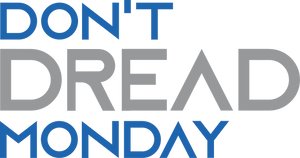Career Transition: Review Your Accomplishments
Career Transition: Review Your Accomplishments
I’ve found it difficult to look back and acknowledge all the things I’ve accomplished in any given job or season of life. Our culture focuses so heavily on self-improvement (which is definitely important), that I have a tendency to only see my flaws and shortcomings.
Today’s exercise will complement that self-improvement work while also giving you a boost of self-esteem.
For the last part of the Assessment Step of your career transition journey, we’ll discuss your accomplishments—namely, how to write them down for a resume or concisely explain them in an interview.
Step 1: Assessment
Step 2: Preparation
Step 3: Action
As a refresher, there are several parts of Step 1: Assessment, namely:
- Understanding the emotions you have related to your career transition.
- Assessing your finances.
- Writing down your skills and abilities.
- Evaluating your career options.
- Deciding your values, motivators, and interests.
- Reviewing your accomplishments.
To begin, let me define what an accomplishment is:
An accomplishment is an important contribution where you played a key role as a manager, leader, or team member.
Accomplishments are:
- Meaningful contributions made during your career.
- Results of your actions.
- Examples of the type of contributions you will make with your new employer.
I’m certain everyone has a handful of accomplishments they achieved throughout their career. It could be anything from financial achievements to interpersonal growth.
Let’s start with your most recent position. List the five to ten accomplishments you are most proud of. These don’t have to be the accomplishments with the greatest dollar or quantitative significance or even accomplishments that you did on your own—include the achievements of a former team if you played a meaningful role in what the group accomplished.
Good! You have your list.
Now let’s make them well-rounded.
Take each accomplishment and follow this CAR outline: Challenge, Action, and Result.
C = Challenge
- The challenge or opportunity faced
- Why action needed to be taken
A = Action
- List each major action taken to resolve the challenge
- Unless obvious, explain why each action was taken (its specific purpose)
R = Result
- Quantify results in terms of dollar amounts, percentages, and numbers, if possible
- How quickly were positive results achieved?
Once you’ve written a CAR outline for each accomplishment, condense it into a one-sentence statement. For example:
Challenge: Needed to spread the word about a new study abroad program at XYZ University.
Action: Organized a multicultural event showcasing the foods of different countries, entitled “Around the World in 80 Plates.”
Result: Over 300 students attended the function, resulting in an increase in interest in studying abroad.
Full statement: Organized a multicultural event on XYZ campus to highlight the new study abroad program, resulting in a crowd of over 300 students and a sharp increase in study abroad interest.
Et voilà! You now have a bouquet of accomplishment statements to take with you to your next interview, networking event, or revamped resume. (This process can be repeated with every job you’ve done if you want to really rewrite your resume.)
Hopefully this exercise has helped you gain a more positive perspective on your career path thus far. For more in-depth help, check out our career coaching programs. Our coaches are seasoned in everything from writing accomplishment statements to helping you decide what your next career move should be.
Happy accomplishing!
Sydney
